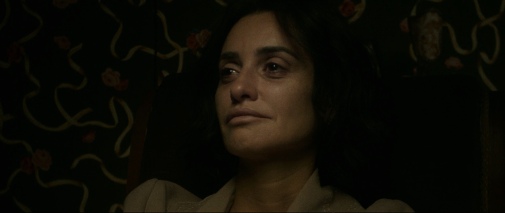
To celebrate the return of the Almost There series, let's consider the season's buzziest turns, starting with a contender who came close to her third Best Supporting Actress nomination and fifth overall nod. She's won before, for Vicky Cristina Barcelona, in a much different register than the one she's exploring in this latest bid for gold. Of course, I'm talking about Spanish superstar Penélope Cruz, who molded her natural accent into some vaguely Italian sound to play Laura Ferrari in Michael Mann's long-gestating biopic project. It's an immense performance, primordial in its power and classical in construction. Devastated and devastating, she's grief incarnate…
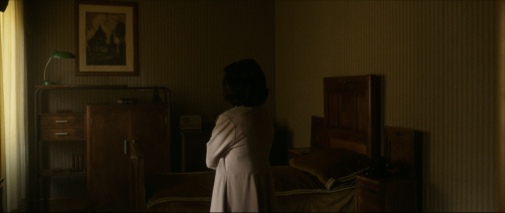
Despite what its title and ads might imply, Ferrari isn't your traditional "cradle to grave" biography of a so-called great man. Instead, it concerns a specific period in the life of Enzo Ferrari, around the Mille Miglia race of 1957, when the engineer and ex-racer was still reeling from his son's death. Dino Ferrari died in 1956 when he was just 24 years old, suffering from Duchenne muscular dystrophy. As one would expect, questions of mortality are a looming presence over a narrative better understood as a study than a story. A study on grief, but also how Man's relationship with his inevitable end, his essential fragility, can drive one beyond reason. In trying to prove themselves above our common impermanence, some risk oblivion.
To grasp such things, the viewer needs a counterpoint to what Enzo, as written by Troy Kennedy Martin and performed by Adam Driver, represents. That's where Laura Ferrari comes in, living with her loss in radically different terms than her husband. In public and shared privacy, he acts as if nothing can touch him, an engineer moving from one problem to the next, existence as machine. Or perhaps it's masculinity as a self-imposed prison. Laura, however, can't look ahead to what comes next. For her, there is no future without her child, so she remains stuck in the past. Laura's grief is no secret. Instead, it's her whole being, consumed from the inside out.
Fittingly, we meet her in a ghost-like state, wandering, almost floating, through the Ferrari home in the early morning hours. Enzo hasn't yet arrived from his lover's residence, so she waits. At first glance, you might think her dispassionate, but storm clouds gather above her head. Even though the camera might not perceive them, there's a threat of thunder electrifying the screen, buzzing ever more intensely each time she answers the phone. Every call is for the man that's not there, so she waits. Only when he manifests in the flesh does the lightning strike. Boom, there goes the gun, a fresh bullet hole in the wall behind Enzo's head.
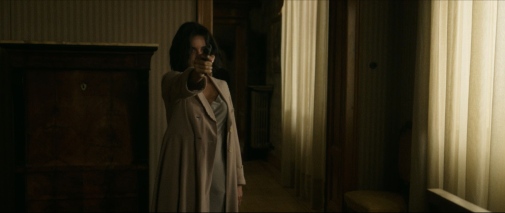
Ungenerous viewers might dismiss Penélope Cruz's take on Laura from this first moment as a reprise of greatest hits. The fiery woman archetype is there, and so is the fury of a jilted wife, with the firearm's blast recalling the role that got her an Oscar. However, I'd argue such conclusions are too hasty and surface-level. Sure, on paper, Laura can feel clichéd in her introduction, but Cruz doesn't play her as such. Notice the stillness as she listens to Enzo make his way inside, the nonchalant way she fishes the revolver out of a bedside drawer. She is angry, but hers is a controlled, even comfortable fury. Harsh words don't yet rise to screams.
Above all else, Laura seems defeated yet ready for a fight. She's a paradox of the warrior who's lost her most important battle and now exists in limbo. Indeed, Cruz almost acts the morning passages as someone going through the motions. In her, Mann finds the inverse of his protagonist, though they're both bound by off-screen tragedy. The director's complementing portraiture can be best appreciated when he forces the viewer to consider how each parent behaves when visiting their son's grave. Alone in the mausoleum, Driver breaks apart, talking more openly than he ever does in the rest of the film, emotion ripping through him until the camera itself seems to shy away.
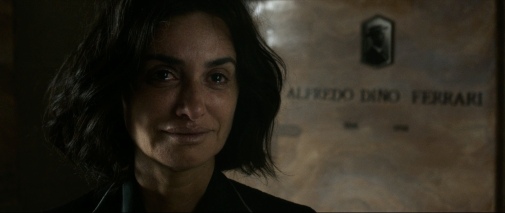
This vulnerability is secret, kept behind closed doors. It looks painful, a cilice wrapped around his heart. But then, he leaves, and in comes Cruz. Unlike him, she doesn't say a single word, and Mann lingers in long takes rather than cutting to alternate angles. Contemplating the actress' face, we're made to confront a woman's brokenness, tears swimming within her look while a smile sketches itself across the face. Enzo confessed and left part of himself in that mausoleum. Laura communes with the dead as if they're still there. They go with her when she leaves, an invisible shroud that Cruz makes palpable to the viewer. If the drivers are in a kind of death cult, so is Laura, even if she's the only member.
She's also a businesswoman and a savvy, pragmatic one at that. Even when dealing with one of the pilot's sudden deaths, there's little feeling in her approach, just strategy and accounting. A horrible possibility is that Laura has no more space to feel such things as compassion. Her soul is occupied to capacity with maternal pain. Later, at dinner, we witness how the spouse's relationship has crumbled into a transactional dynamic in similar fashion. Even their table-top sex has faint airs of a business deal.
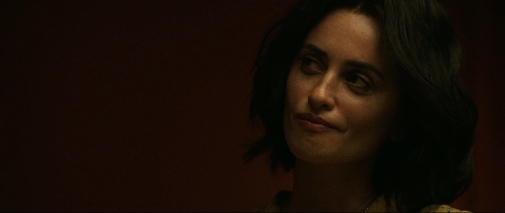
It comes as a response to one of Laura's winning smirks after she convinced Enzo to give her a cheque for half a million dollars and her gun back in exchange for power of attorney over the Ferrari stocks. He'll need it for further deals with the Americans, but the price of Laura's collaboration means she'll have the company's fate in her hands more than she does now. The jilted wife and Ferrari co-founder would only need to cash the cheque to bankrupt them into nothingness. At this moment, Enzo's passion almost seems like another permutation of his love for racing. It's another dance with Death, and her name is Laura Ferrari.
Out in the sun, for errands at the bank and some painful discoveries, Cruz is Anna Magnani reborn. Mourning black covers her body, and her eyes look like they haven't enjoyed a good night's sleep in ages, a cold, constant fire burning inside. It's on the basis of those eyes that Mann constructs one of Ferrari's subtlest and most moving sequences. The camera follows Laura as she makes her way around the mistress' property, coming to grips with the reality of her situation, something she might have already suspected. There's no unnecessary dialogue or emotional demonstration, leaving us to see the realization of a woman staring into the void. Little can prepare you for the moment when Laura reaches for a battered toy car.
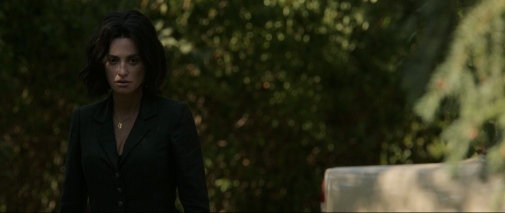
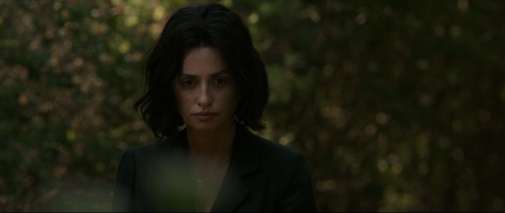
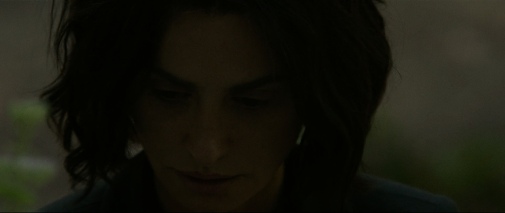
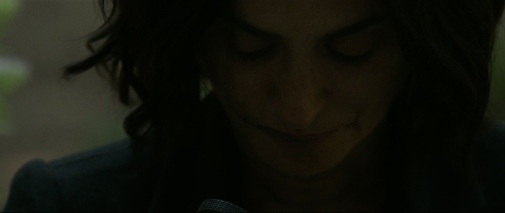
We can surmise so much in one gesture, like the knowledge that her husband has another son, a bastard that may have already started to replace Dino in his heart. But worse, the toy's state suggests its age, much greater than the boy who now plays with it. Once upon a time, this belonged to Laura's child. At home, her only change in demeanor will be an added chill to her words, but the little artifact of childhood past remains in frame, glaring a silent accusation at Enzo. Later, listening to opera on the radio, Laura will seem more lost than ever. Like in the mausoleum, she smiles. Not one of her victorious smirks at the heat of negotiations. No, this is an honest grin, as if thankful she can still recall the feeling of holding Dino in her arms.
With all these descriptions, I'm afraid I might have betrayed this characterization's dexterity and grace. For all the fire and fury and forlorn feeling, this is a very controlled performance. Notice the pause, the movement of the mouth and throat when Laura finally confronts Enzo about his second family. It's over the phone, and when not met with lies or denials, she's left speechless. It's not some sensational catatonia, but a grieving woman dealing with a complicated situation, unsure of the next move. She's also a business-savvy pragmatist, percolating possible strategies before making a misstep in a new matrimonial transaction.
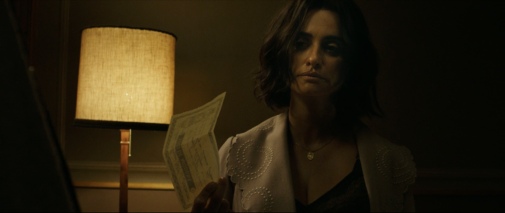
Long after, when night has fallen, we'll find her ready for domestic ambush, armed with her most poisonous dictum yet. Finally, the melodrama explodes into a shouting match, with a woman possessed accusing Enzo of failing their son. In the end, with both exhausted, she holds the unsigned cheque like a chess master moving to checkmate. Though Laura has a mercurial nature, Cruz allows an unsettling possibility to this argument. Did she engineer it to secure Enzo's signature? More screams will come later when the woman confronts her mother-in-law, but then there will be no possible ulterior motive to invite second-guessing. Only ache curdled into anger, spilling in shouts as if she can't avoid it now that the seal's been broken.
Cruz's first scene found Laura waiting for Enzo, messages from various phone calls at the tip of her tongue. Her last is the same. Only there's a new vitality reencountered within the specter, maybe even some humor. At first, knowing she cashed the cheque, one might presume it's the stance of one who destroyed her enemy. But Enzo is not her nemesis, and destroying Ferrari and, by consequence, Dino's legacy, would never be the woman's objective. Like she avoided the temptation for melodrama at the film's beginning, Cruz underplays what could be a "twist" in the hands of a lesser performer.
Instead, this revelation opens the character's soul so the audience can catch a glimpse and hope to comprehend what this all means to one Laura Ferrari. Holding the camera on his actress, Mann gives her this entire scene to swallow whole, culminating in Laura's only demand, the only thing she asks for after effectively saving the company's future – Enzo will only legitimize his bastard after her death. Let her live her last years in a world where Dino was the prodigal son and none other came after him. There's maybe no more heartbreaking moment in Mann's filmography, and it's all due to Cruz, her measured delivery, the sorrow shining within her gaze.
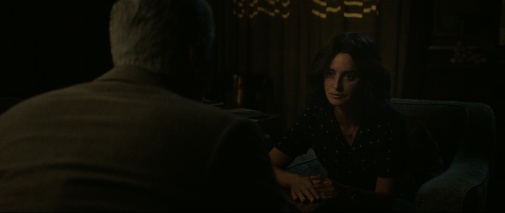
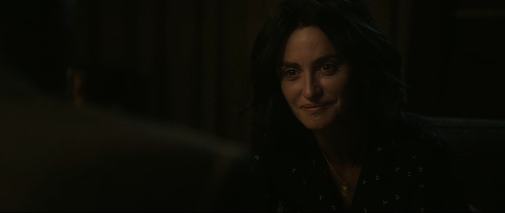
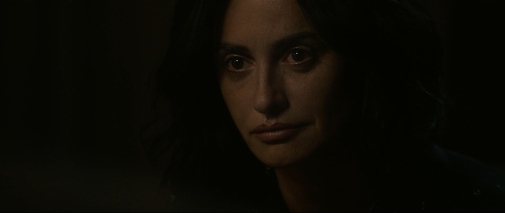
You don't need any reminder of this year's Best Supporting Actress Oscar crop. So, I'll merely list what Penélope Cruz achieved in a season dominated by one performer who easily swept through it. For Ferrari, the Spanish star was nominated for the Satellite Award as a lead, for the Gotham Awards, and the SAG. Throughout the season, she picked up a good variety of nominations from regional critics groups but not a single win. However, Cruz was runner-up for the prestigious National Society of Film Critics prize. In almost all of these instances, she lost out to Da'Vine Joy Randolph, who'll probably win the Oscar, too. But in my view, Cruz outperforms all five of AMPAS' nominees. Do you agree?
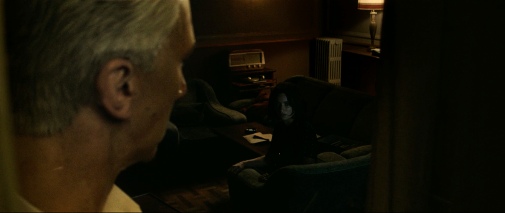
Ferrari is still playing in some cinemas. However, you can rent and buy it from all the major platforms, including Apple TV, Amazon, Google Play, and YouTube.